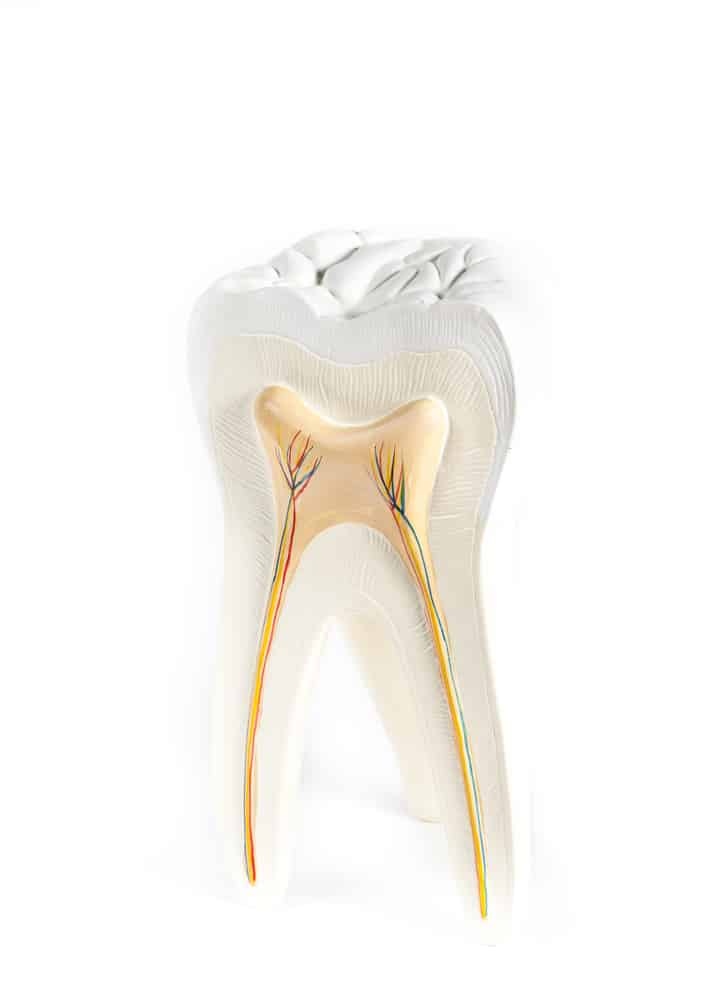Not All Root Canals are the Same

The anatomy of every single tooth is different and some teeth are easier to perform root canals than others. Front teeth, for example, have only one nerve or canal and are much easier to perform root canals on. Upper back teeth can sometimes have up to 5 or 6 nerves and are harder to access so root canals on those teeth are significantly more difficult and expensive. Dr. Arash recommends that root canals be performed by root canal specialists often referred to as “endodontists.” Root canal specialists have advanced training in root canals and also utilize certain instruments and equipment in making sure the root canals are done correctly. Often times root canal specialists use microscopes to find and locate the small nerves that are often missed and overlooked with the naked eye. Dr. Arash employs several root canals specialists on his team to ensure that his patients see the best root canal dentist and receive the best root canal treatment possible. Just as important is the quality of materials that are used to perform the root canal. When dentists use cheap materials inside the patient’s mouth, there is a higher risk of failed root canals and recurrent infection. Root canals are the dentist’s last attempt to save the tooth and while they have a very high success rate with expert root canal doctors, they don’t always work and require monitoring to evaluate their success.
Common Questions:
- Can you do a root canal if you are pregnant? The answer is YES! While most procedures are avoided during pregnancy, root canal treatment is one of the few treatments that can be safely performed for a pregnant patient who needs it.
- Do root canals hurt? Root canals should not hurt and a properly performed root canal can oftentimes be 100% pain-free by using the right techniques and also the right type of local anesthesia. Root canals are meant to remove pain not cause them.
- How long does it take to do a root canal? Depends on the condition of the tooth and also the number of nerves inside the tooth. If there is a very bad infection sometimes the root canal is started and medication is left inside the tooth and the patient comes back for a second visit to finish the root canal.
- How much does a root canal cost? Root canal cost is one that will vary based on the experience of the doctor and also the type of tooth that needs the root canal. If the tooth has less nerves it is much less expensive than a tooth with multiple nerves. General dentists trained to do root canals are often much cheaper than root canal specialists but often do not perform root canals at the same quality as an endodontist.
- Are root canals dangerous or bad for your health? Like any other dental or medical procedure that is not done correctly or that fails, root canals can be very harmful to the patient. When root canals fail, the patient does not have the nerve to feel the pain but the infections persist in releasing bacteria into the body silently and constantly.
- Where can I find a root canal doctor near me? Root canal specialists are often available via a referral from a general dentist. If the general dentist feels that they are unable to perform a root canal, the general dentist will give you a referral to see a specialist.
- What are the best ways to prevent a root canal? The best way to prevent a root canal is to see your dentist BEFORE you have any pain and to fix cavities before they reach the nerve with simple and effective white fillings.
- Does oil pulling prevent root canals? This is a controversial subject but while oil pulling and other forms of holistic treatments have lots of benefits, oil pulling does NOT prevent root canals consistently or effectively.
- Is there pain after root canal treatment? Sometimes the tooth requires a certain amount of time to heal before the pain comes down but generally, if there is a pain after a root canal that is not getting better within a few weeks there is a problem and the dentist should be seen.
- Do I need a crown after a root canal? Most often when a root canal procedure is performed the tooth is already so badly damaged that it requires a dental crown. Dental crowns or “dental caps” are placed over the tooth to not only protect the tooth but to restore the original shape the tooth had before it was damaged.
Additional Information:
Sometimes there are no early warning signs to dental pain and the teeth suddenly start to hurt which is also known as acute pain. Just like many other diseases such as high blood pressure or even high cholesterol, dental infections and dental cavities do not have any symptoms until it is too late or until the disease has progressed to an advanced state. Acute tooth pain can be very strong and is often described as sharp tooth pain or a toothache that limits your ability to eat, chew, speak or even sleep.
In fact, did you know that a toothache can also cause jaw pain, pain in the ear, pain in the cheeks and also a pain in your gums?

